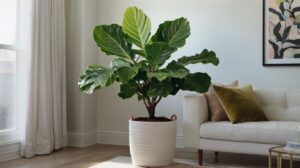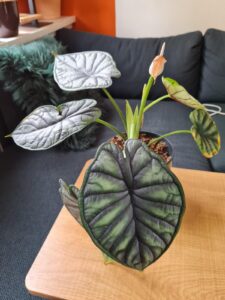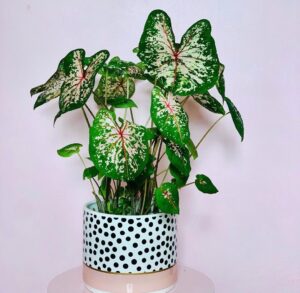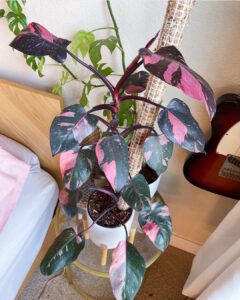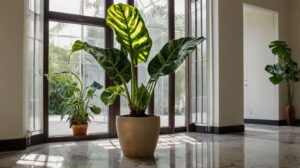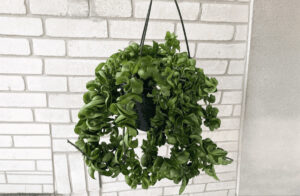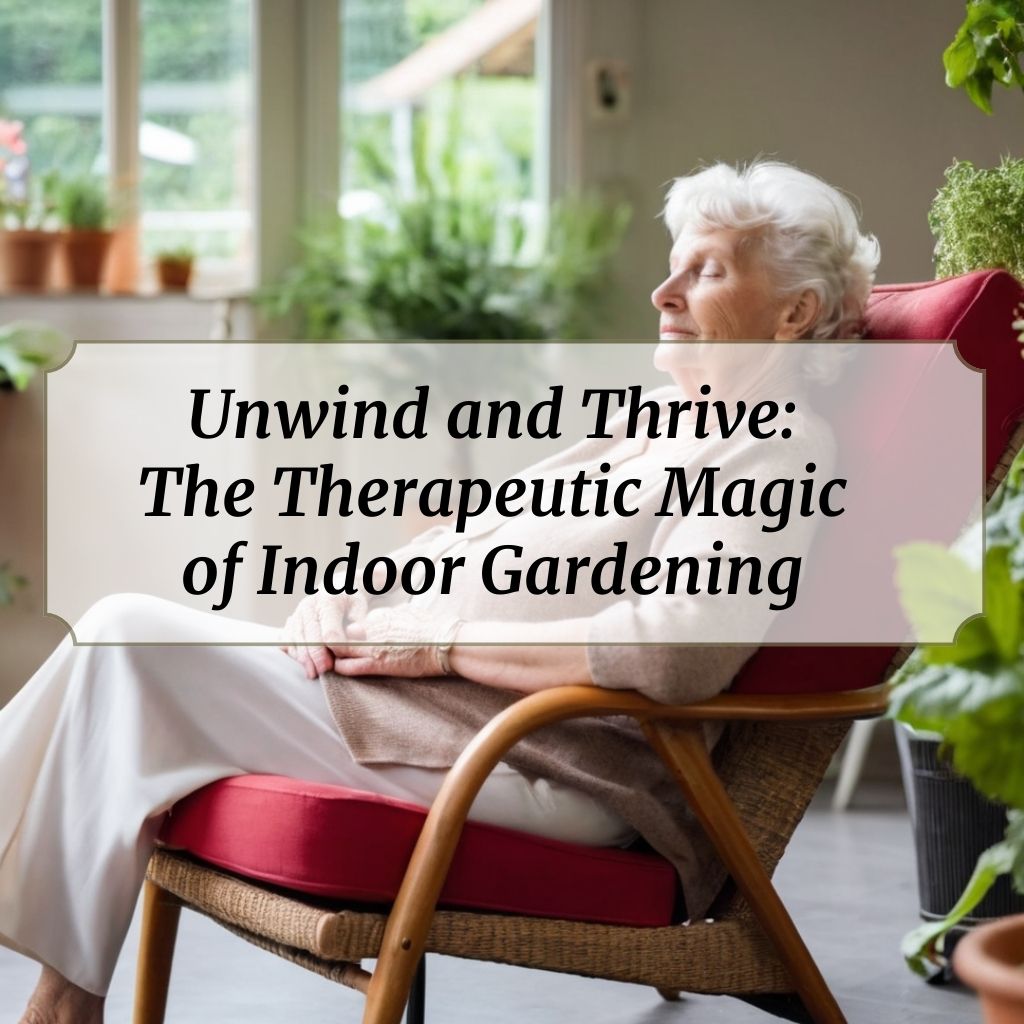
Indoor gardening offers a therapeutic escape that brings nature’s magic into our homes. The joy of nurturing plants not only beautifies our living spaces but also provides a powerful tool for nurturing our mind and soul. In this article, we’ll explore the profound impact indoor gardening can have on your overall emotional health.
In this article
Greenery Within Your Reach
Step into the realm of indoor gardening, and you step into a sanctuary that requires no boarding pass or reservation.
It’s an oasis within arm’s reach, a place where the stress of the outside world takes a back seat. Tending to your indoor garden is not just about nurturing plants; it’s about nurturing yourself.
The act of caring for living organisms triggers a cascade of positive emotions.
As you water your plants, trim the leaves, and watch them flourish, a sense of accomplishment and connection begins to sprout within you. It’s a therapeutic dance between human and nature, a rhythm that soothes the mind and uplifts the soul.
Cultivating Calm in a Potted Haven
In the chaos of daily life, finding moments of peace can seem like an elusive treasure. Indoor gardening, however, is a key to unlocking this treasure trove of tranquility. It’s a symphony of serenity that drowns out the noise of the world outside.
Numerous studies have shown a direct correlation between interacting with indoor plants and a reduction in stress levels.
The simple act of being in the presence of greenery can lower cortisol, the infamous stress hormone, leading to a more relaxed and composed state of mind. Your indoor garden becomes a refuge—a place to unplug, unwind, and recharge.
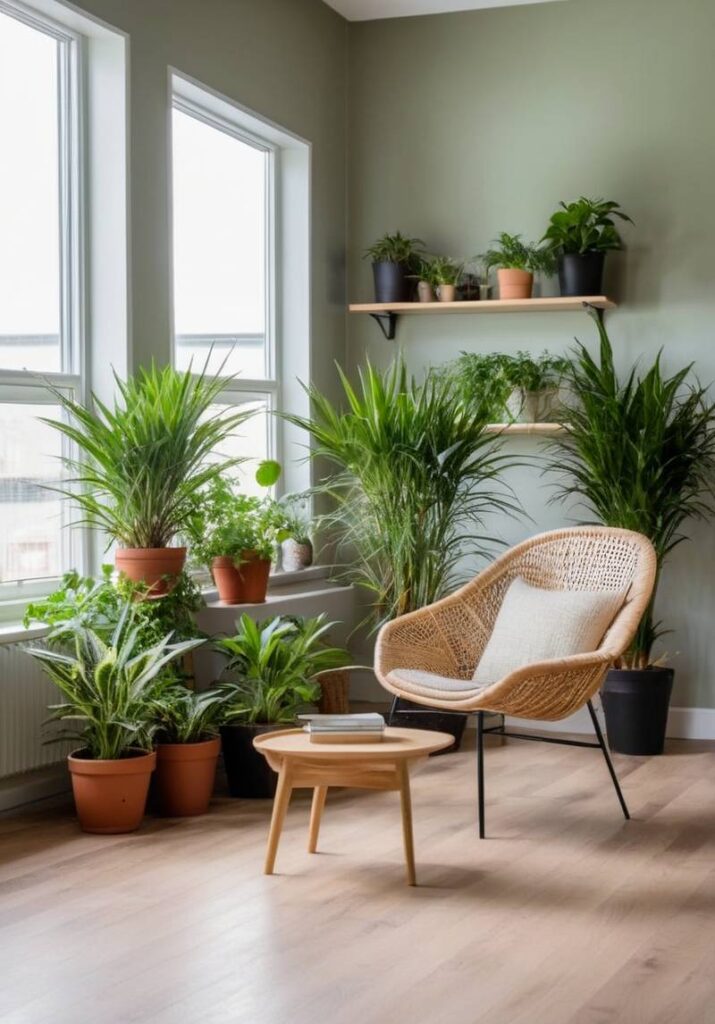
Did you know?
- Spending time with indoor plants has been found to quickly improve mood, bring relief in enclosed spaces, and reduce stress.
- The presence of indoor plants in a hospital room has been found to reduce feelings of stress through the perceived attractiveness of the room.
- The simple act of being in the presence of greenery can lower cortisol, the stress hormone, leading to a more relaxed and composed state of mind.
- Even looking at pictures of plants has shown to have a positive impact on stress levels.
Growing Positivity, One Leaf at a Time
Indoor gardening is not just about the physical act of nurturing plants; it’s about fostering a positive mindset.
As you witness the growth and development of your green companions, a sense of optimism takes root within you.
The small victories of seeing a new leaf unfurl or a blossom bloom become metaphors for personal growth and resilience.
In the world of indoor gardening, every setback—a wilted leaf or a struggling plant—is an opportunity to learn and adapt.
It’s a reminder that growth often comes with challenges, and the journey is as important as the destination.
The resilient nature of plants mirrors the resilience we need in our own lives. It’s a powerful lesson in embracing setbacks as stepping stones toward a brighter, greener future.
Gardenering and Meditation
In the midst of our fast-paced lives, finding moments for mindfulness can be a challenge. Indoor gardening, however, offers a form of active meditation.
As you engage with your plants—pruning, watering, and arranging—the noise of the outside world fades away.
It’s a meditative practice that allows you to be fully present in the moment.
The rhythmic rituals of indoor gardening become a form of meditation in motion.
The tactile experience of soil between your fingers, the visual delight of vibrant green hues, and the subtle symphony of nature provide a sensory escape from the demands of modern life.
It’s a moment to breathe, reflect, and appreciate the beauty unfolding before you.
The Science Behind the Serenity
It’s not just anecdotal—science supports the serenity found in indoor gardening. Researchers have found that interacting with indoor plants can lead to physiological changes in the body, including lower heart rate and blood pressure.
The presence of plants in indoor spaces has been linked to improved air quality, further enhancing the overall well-being of individuals.
The science of biophilia, the innate human connection to nature, plays a crucial role in understanding why indoor gardening has such a profound impact on our mental health.
Our evolutionary history has wired us to seek connections with the natural world, and indoor gardening provides a tangible way to satisfy this inherent need.
Creating a Space of Serenity
Now that we’ve uncovered the therapeutic magic of indoor gardening, how can you cultivate your personal Eden within the confines of your home?
It’s simpler than you might think.
Begin by choosing plants that resonate with you—whether it’s the vibrant petals of flowering plants or the elegant simplicity of succulents.
Your indoor garden is an expression of your personality and preferences.
Consider the layout of your indoor garden as well.
Create a space that invites you to linger, with comfortable seating, soft lighting, and perhaps a touch of soothing music.
This is not just a collection of plants; it’s a curated sanctuary designed to elevate your well-being.
The Healing Power of Horticulture
Indoor gardening is not merely a hobby; it’s a form of horticultural therapy.
The intentional act of nurturing plants has the power to heal and restore.
As you cultivate your indoor garden, you’re not just growing greenery; you’re cultivating a haven of well-being, a sanctuary where stress withers away, and positivity blossoms.
In the next part of our journey through the world of indoor gardening, we’ll explore the sustainable revolution happening right within the confines of your home.
From seed to table, indoor gardening takes on a new dimension as we unravel its role in the sustainable food movement.
Get ready to discover how your indoor garden can be a powerful player in the larger tapestry of eco-friendly living.
Stay tuned for Part 2, green thumbs!

